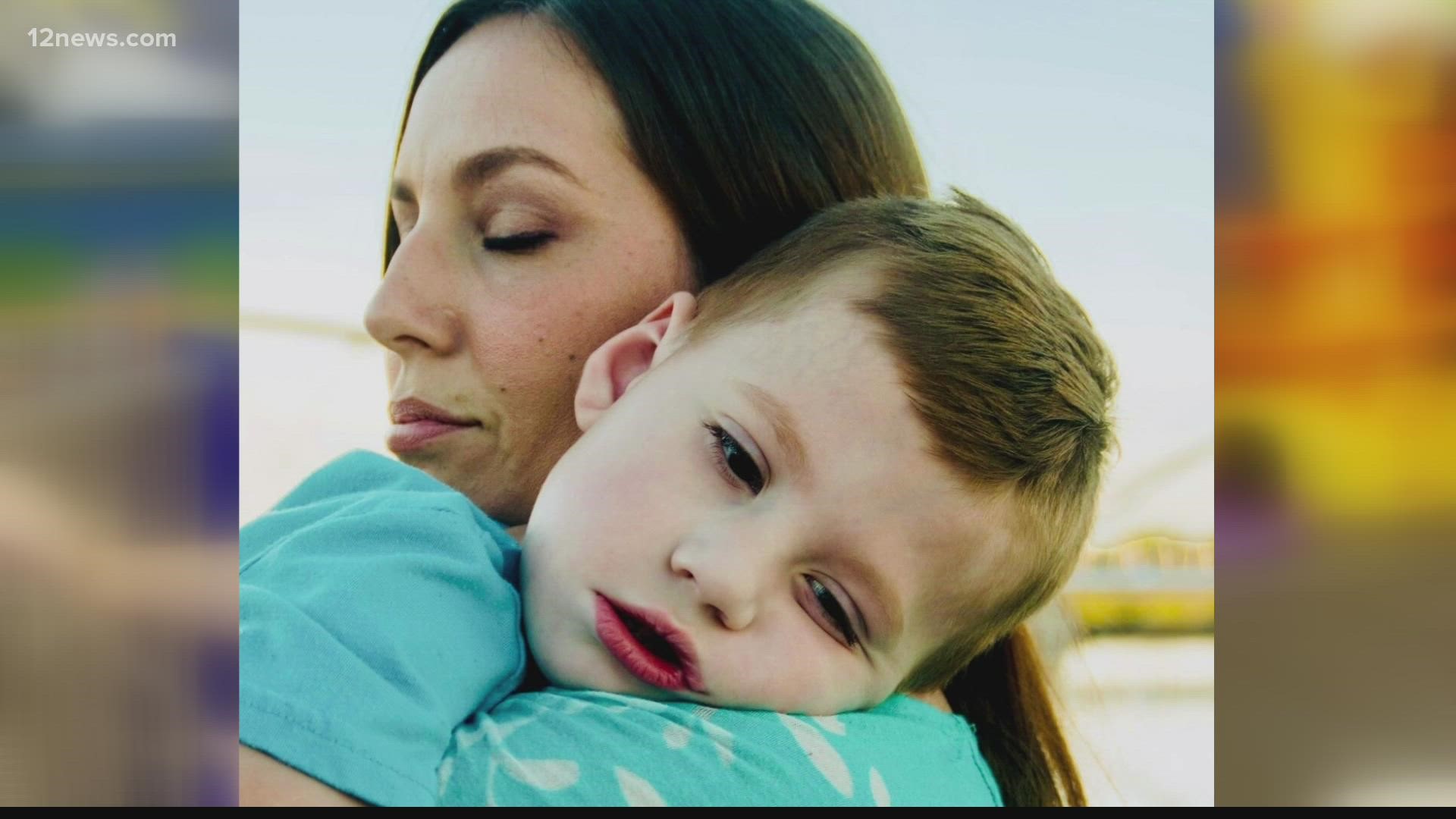PHOENIX — Every minute of class time is precious for 11-year-old James Broderick. The special education student gets just four hours of online instruction from his teachers per week.
“It’s just not enough," said Sarah Broderick, James’ mother. "He’s regressing.”
James has Autism and congenital myotonic dystrophy, a neurological disorder. He’s too medically fragile to get the COVID-19 vaccine. When schools were online during the pandemic, James attended classes virtually all day, every day.
Now that schools are back to only providing in-person learning, it is up to each school district to determine how to cater to the educational needs of a child who can’t attend school in person.
The best compromise Sarah could negotiate with the Washington Elementary School District is one-hour a day of online learning with a teacher, four days a week. Sarah believes students like her son have been left behind during this stage of the pandemic.
“I had to fight to get just four hours a week," she said. "I don’t understand for the life of me why virtual is not an option for kids like my son. Why is it not offered?”
It’s up to individual school districts and charter schools to work with parents on how best to meet the child’s educational needs, according to the Arizona Department of Education. The state is providing professional development and technical assistance to districts and parents.
The state also offers mediation for children with Individualized Education Plans (IEP’s) and a parent has the option to file a court complaint if they are not satisfied.
“I realize I could file a court complaint, but his school is already suffering. Legal action is not what I want to do. Our hands are tied,” Sarah said.
The Washington Elementary School District tells 12 News it can’t comment on James’ specific case, but that “the child’s teachers and their parents work together to come up with a plan that is mutually agreed upon.”
Some families have decided to keep their children at home and receive homebound services, according to the district. Homebound services may include a teacher visiting the home.
However, there is no guarantee that the teacher is vaccinated and will wear a mask. It’s not a risk Sarah is willing to take.
“I have no idea what this virus would do if my son caught it...if I caught it,” Sarah said.
It’s hard to know how many students statewide are in the same predicament as James. The state does not collect data on the medical condition of students. That information is overseen by the U.S. Office of Civil Rights.
A spokesperson for the ADE tells 12 News it has not seen an increase in complaints from parents.
“To date, for students eligible to receive special education services, ADE has not seen an uptick in reports of special education services not being provided or disputes about how to best support students with disabilities,” said ADE Public Information Officer Morgan Dick in a statement to 12 News.
The ADE encourages collaboration between parents and schools to produce creative, innovative, and safe ways consistent with the Individuals with Disabilities Act (IDEA), according to Dick.
“Should there be a concern regarding the delivery of services for a child, parents of students with disabilities can access Dispute Resolution options if they have concerns,” Dick said.
In the meantime, Sarah takes on the role of teacher and full-time caregiver with her son.
“He is my whole heart and my whole world,” she said. “I gave up everything to be with him and I have absolutely no regrets whatsoever."
12 News on YouTube
Catch up on the latest news and stories on the 12 News YouTube channel. Subscribe today.

